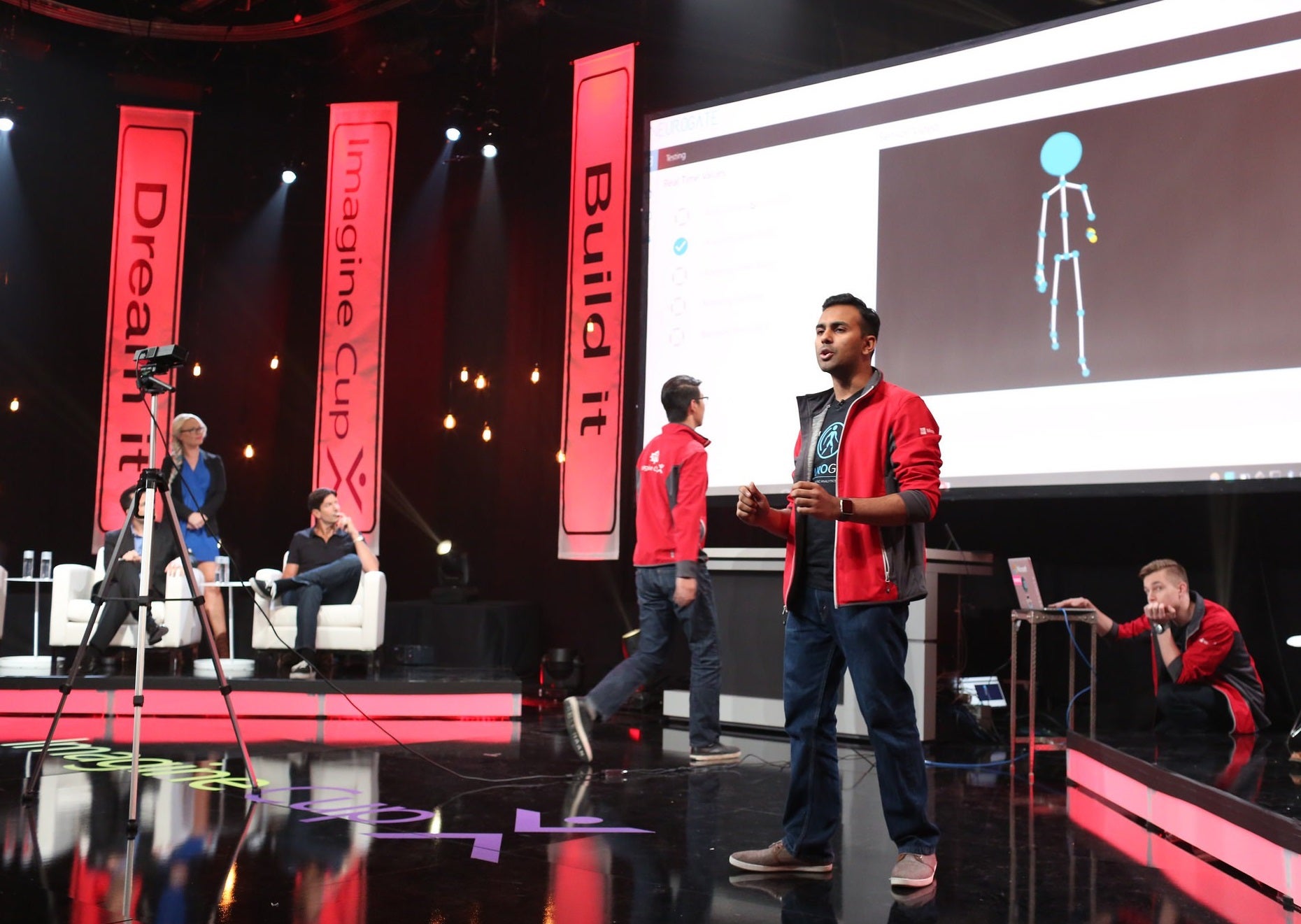A pair of second-year students at Waterloo Engineering already have their sights set on commercialization of a medical diagnostic tool after an impressive showing at an international pitch competition sponsored by Microsoft.
Declan Goncalves and Zeqi Cui are two-thirds of the brains behind NeuroGate, computer software that uses sensors and artificial intelligence (AI) to diagnose neurodegenerative diseases including Parkinson’s, Huntington’s and ALS.

NeuroGate members Zeqi Cui, left, Hrishikesh Suresh, centre, and Declan Goncalves, right, make their pitch and give a demonstration at the Imagine Cup international finals in Redmond, Washington.
Together with Hrishikesh Suresh, a medical student at McMaster University, they topped a field of more than 100 entries in Canada and finished fourth out of 54 teams from around the world at the Imagine Cup finals in Redmond, Washington late last month.
Goncalves, a software engineering student, said the exposure has led to inquiries from venture capitalists and angel investors as the trio makes plans to pursue the project as a business startup.
“We’re already looking down the road and definitely want to develop this into a commercial product,” he said.
Their plans include using the system with patients in a neurologist’s office at McMaster starting next month to further train, refine and test the technology, which has so far achieved an accuracy rate of 80 to 90 per cent using simulated data.
Goncalves, Suresh and Cui, a computer engineering student, first connected about a year ago during a hackathon at Harvard University. They took top prize there with the basic concept that has since grown into NeuroGate.
'I love explaining it'
The system involves patients walking for 15 to 30 seconds in front of a sensor that analyzes their gaits. Data is then run through machine-learning algorithms that have been trained to detect telltale signs of neurodegenerative diseases.
“I love explaining it to people because it’s a pretty cool idea,” said Goncalves. “It’s just mind-blowing how it actually works.”
Among the possibilities as the AI at the heart of the system learns from more and more data, especially data from actual patients, is that it could discover previously unknown early warning signs of neurodegenerative diseases.
The top prize of $100,000 US at the international Imagine Cup finals went to a team from the Czech Republic. The fourth-place finish by NeuroGate was the best ever by a Canadian team in the 15-year history of the event.